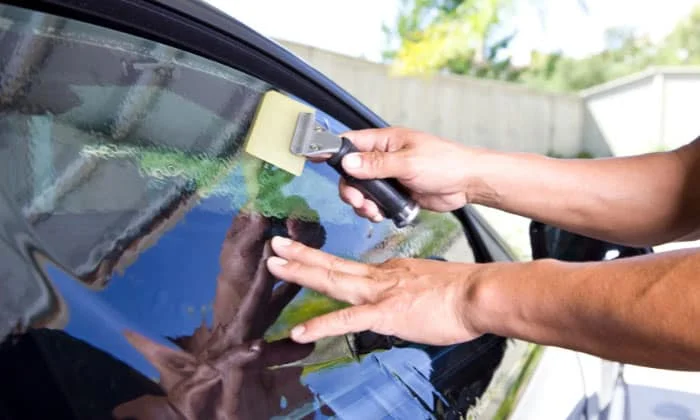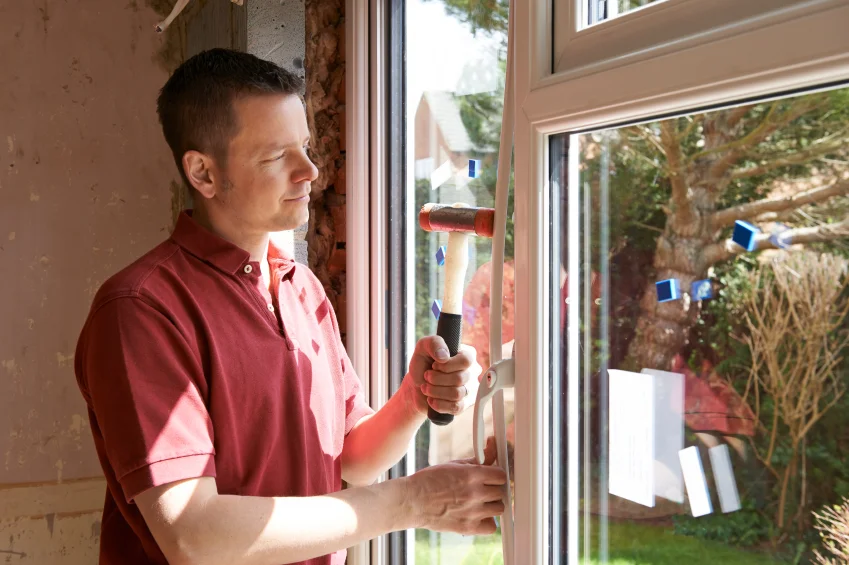Welcome to our blog post on the fascinating world of window tinting! If you’ve ever wondered about adding a touch of style, privacy, and protection to your windows, then you’re in the right place. Window tinting has become increasingly popular for both residential and commercial properties, offering a range of benefits beyond just enhancing aesthetics. In this article, we’ll delve into what window tinting is all about, explore its numerous advantages, discuss how to go about getting your windows tinted, highlight different types of window film available in the market – and most importantly – answer the burning question: can you use AC after tinting windows? So let’s roll down those windows (figuratively speaking!) and embark on an enlightening journey through the realm of window tinting!
What is window tinting?
Window tinting is a process that involves applying a thin film to the windows of your car, home, or office. This film is made up of multiple layers and contains various materials, such as polyester and metalized coatings. The purpose of window tinting goes beyond just adding a touch of style – it offers numerous practical benefits.
One major advantage of window tinting is increased privacy. By darkening the windows, it becomes difficult for outsiders to see what’s happening inside. This can be particularly beneficial for those who value their privacy or have valuable belongings they want to keep out of sight.
Another benefit is heat reduction. Window tinting helps block out harmful UV rays from the sun, which not only protects your skin but also keeps the interior temperature cooler during hot summer days. This means you won’t have to rely solely on air conditioning to stay comfortable when driving or spending time indoors.
Additionally, window tinting can help protect your furniture, artwork, and flooring from fading due to prolonged exposure to sunlight. The film acts as a shield against UV rays that can cause discoloration over time.
Moreover, window tinting provides extra safety by holding glass shards together in case of an accident or breakage. This reduces the risk of injuries caused by flying glass pieces during such incidents.
Window tinting offers both aesthetic appeal and practical advantages that make it an appealing option for many individuals seeking improved comfort and protection in their vehicles or buildings.
The benefits of window tinting
Window tinting has become increasingly popular among homeowners and car owners alike, and for good reason. The benefits of window tinting go beyond just enhancing the aesthetic appeal of your vehicle or property.
One of the most significant advantages of window tinting is its ability to block harmful UV rays from entering through your windows. This helps protect not only your skin but also prevents fading and damage to furniture, flooring, and upholstery caused by prolonged exposure to sunlight. Additionally, window tinting can lower the temperature inside your car or home by reducing heat gain from the sun’s rays.
Privacy is another benefit that comes with window tinting. By adding a layer of film to your windows, you can enjoy increased privacy without compromising natural light transmission. This is particularly beneficial for those living in busy urban areas or for people who simply value their privacy.
Furthermore, window tinting can increase energy efficiency by reducing the need for excessive air conditioning use during hot summer months. By blocking out excess heat, tinted windows help maintain a comfortable indoor temperature while minimizing energy consumption.
Last but not least, window tints offer an extra layer of security as they make it more difficult for potential thieves to see into vehicles or homes. This added level of protection acts as a deterrent against break-ins.
There are numerous benefits associated with window tinting including UV protection, enhanced privacy, improved energy efficiency, and increased security. Whether you choose to have your car or home windows professionally tinted or opt for DIY kits available on the market today – it’s clear that investing in quality window films is a decision that offers long-lasting advantages
How to tint your windows
Tinting your windows can be a great way to enhance the privacy and aesthetics of your vehicle or home. While professionals can certainly handle the job, doing it yourself is also an option. Here are some steps to guide you through the process.
Gather all the necessary tools and materials. This includes window film, a squeegee, a spray bottle with soapy water, a utility knife, and a heat gun.
Start by thoroughly cleaning your windows to ensure there are no dirt or debris particles that could interfere with adhesion. Use soap and water or glass cleaner for this step.
Next, measure and cut the window film according to the size of each individual window pane. Remember to leave some extra material around the edges for easier installation.
Spray a generous amount of soapy water onto the glass surface before applying the tinted film. This will allow you to reposition it if needed without damaging it.
Carefully apply the film onto each window pane using your hands or a squeegee. Smooth out any air bubbles as you go along.
Use a heat gun to shrink and seal the film around each corner and edge of your windows. Be cautious not to overheat as this could damage both the film and your windows.
With these simple steps in mind, you can successfully tint your own windows in no time! Just remember patience is key when handling delicate materials like window films
The types of window film
When it comes to window tinting, there are various types of films available on the market. Each type offers its own set of benefits and features, catering to different needs and preferences.
One popular type of window film is the dyed film. This film contains a layer of dye that helps reduce glare and block out harmful UV rays. It also provides some heat rejection properties, making it a cost-effective option for those looking for basic protection.
Another common choice is the metalized film. This film contains tiny metallic particles that reflect heat away from your car or home’s interior. It offers excellent heat rejection capabilities and can significantly improve energy efficiency by reducing cooling costs.
If you’re concerned about privacy, consider opting for a reflective or mirrored film. These films have a shiny appearance on the outside while maintaining visibility from the inside during daylight hours. They provide both privacy and protection against UV rays.
For maximum performance, ceramic window films are an excellent choice. Made with advanced technology, these films offer superior heat rejection without interfering with electronics signals like GPS or mobile reception.
Security window films are designed to reinforce glass strength and prevent shattering upon impact. These films add an extra layer of protection against break-ins, accidents, or natural disasters.
With so many options available in terms of types of window film, it’s important to consider your specific needs before making a decision. Whether you prioritize energy efficiency, privacy, or security – there’s a type of window film out there that will fit your requirements perfectly!
Can you use ac after tinting windows?
Window tinting is a popular choice for many individuals looking to enhance the look and functionality of their vehicles or buildings. It offers numerous benefits such as UV protection, privacy, heat reduction, and glare reduction.
When it comes to tinting your windows, there are several methods you can choose from. Whether you decide to tackle it yourself or hire a professional, make sure you follow the proper procedures to ensure a successful installation.
There are various types of window film available on the market today. Each type has its own unique features and advantages, so be sure to do your research before making a decision.
Now let’s address the question that’s been on your mind: Can you use AC after tinting windows? The answer is yes! After tinting your windows, you can absolutely continue using your air conditioning system without any issues. In fact, tinted windows can even help improve the efficiency of your AC by reducing heat transfer from outside sources.
However, keep in mind that newly installed window film may need some time to fully cure before rolling down your windows completely or cleaning them. Be sure to check with the manufacturer or installer for specific guidelines on when it’s safe to do so.
In conclusion (without explicitly stating “in conclusion”), window tinting offers numerous benefits and enhances both the aesthetics and functionality of vehicles and buildings alike. With proper installation and maintenance, you can enjoy all these advantages while still being able to use your air conditioning system without any concerns. So go ahead and get those windows tinted – stay cool and protected!




